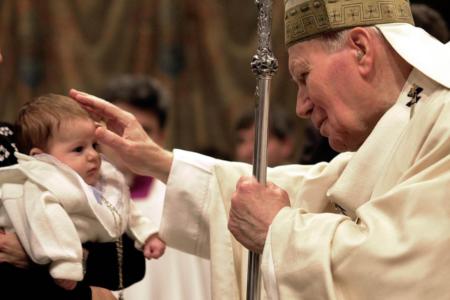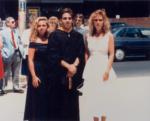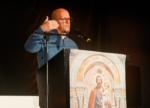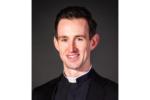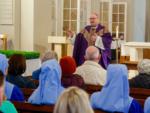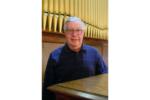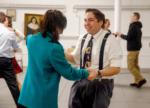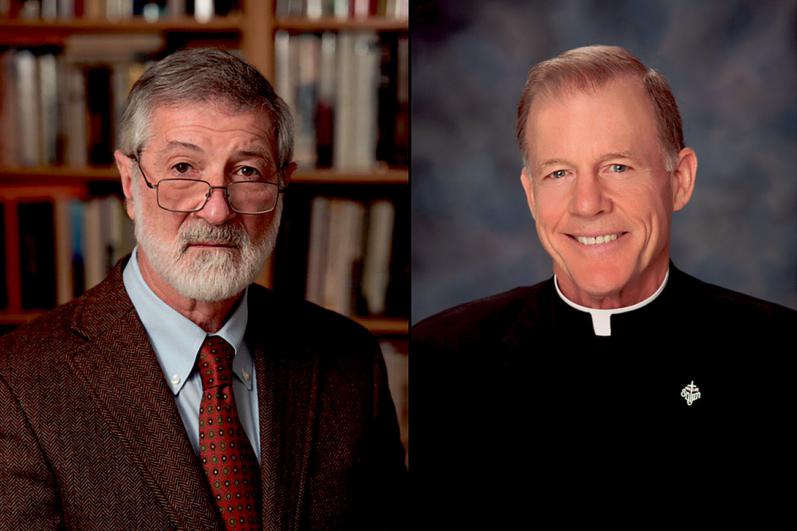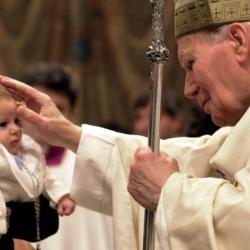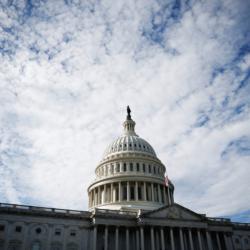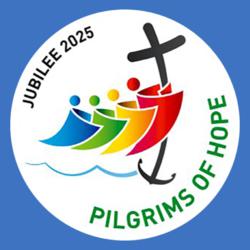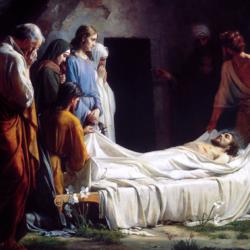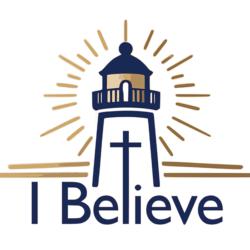Parish to host national speakers for webinar on nuclear disarmament
NEWTON -- Russia's invasion of Ukraine in February revived a decades-old fear in the American psyche: the threat of nuclear war. But even before that, the collaborative of Sacred Heart and Our Lady Help of Christians (SHOL) was planning an event to educate people about the issue of nuclear weapons -- and why Catholics should care about it.
SHOL will hold a webinar, entitled "A World Without Nuclear Weapons: The Humanitarian and Moral Imperative," on May 15 at 7:30 p.m. The webinar, held via Zoom, will have two speakers who are experts on nuclear weapons: Dr. Ira Helfand, a co-founder and past president of Physicians for Social Responsibility, and Archbishop John C. Wester of the Archdiocese of Santa Fe, New Mexico.
The featured speaker, Dr. Helfand, approaches the issue of nuclear weapons from the perspective of a physician. He is the previous president of International Physicians for the Prevention of Nuclear War (IPPNW), which won the 1985 Nobel Peace Prize. He is currently on the steering committee of the International Campaign to Abolish Nuclear Weapons (ICAN), which won the Nobel Peace Prize in 2017.
The atomic bomb was developed in Archbishop Wester's archdiocese, which also encompasses two nuclear weapons labs, Los Alamos and Sandia. His archdiocese is economically dependent on that industry, and part of his dialogue concerns establishing alternative jobs for those who work in it.
"We would like to have as many people as possible hear from these two extraordinary leaders," said Barbara Allaire, who is helping to organize the webinar. She is a parishioner of SHOL and a member of its chapter of Pax Christi, an international Catholic peace movement.
The collaborative was originally inspired to hold this event after Archbishop Wester released his pastoral letter in January, "Living in the Light of Christ's Peace: A Conversation Toward Nuclear Disarmament." In it, he examines the physics, the politics, and the morality surrounding nuclear weapons, and invites Catholics to have conversations about working toward their elimination.
Peter Metz, a longtime participant in the SHOL collaborative's Peace and Justice Committee, noted that Archbishop Wester is one of the few Church leaders that have taken a strong stand on the issue of nuclear weapons. Historically, most Catholic bishops in the U.S. taught that possessing nuclear weapons was an unfortunate but necessary measure to deter the use of such weapons by other countries.
In contrast with this view, the popes of recent decades have been more direct in condemning the development and ownership of nuclear weapons. A significant shift took place in 2017, when Pope Francis stated that the elimination of nuclear weapons is a moral imperative. The Holy See was instrumental in the creation of the Treaty on the Prohibition of Nuclear Weapons that year, and became the first nation to sign and ratify it.
Metz cited the "existential threat" posed by nuclear weapons, which he called "the most horrendous weapons that mankind has ever conceived."
"That gives us a real moral responsibility to deal with that, as Pope Francis has so rightly identified," Metz said.
He said that, unlike the threat of climate change, which has taken effect gradually, the current amount and readiness of nuclear weapons could make the earth unlivable overnight.
"The threat that we could exterminate mankind as we know it is unconscionable from my point of view as a Catholic," he said.
Allaire said this issue is important to her because she feels "a tremendous responsibility for the earth and for all of us who live on it and all of those who will come after us."
She said she feels similarly about climate change, and that her sense of responsibility comes from her faith.
"My faith calls me to try to do whatever I can to move the faithful and, even beyond that, to move other people to try to turn back these existential threats to all of us," Allaire said.
She said people were "very attuned" to the possibility of nuclear war during the Cold War, particularly in the 1960s and 1970s.
"There was a great deal of activity around ending the threat of nuclear weapons. When the Cold War ended, I think we all got a little complacent," she said.
Since then, she said, there have still been activists working on the issue, but it has not received the level of attention it had before.
"It is time to bring back a very passionate concern among everyone who wants this world to be existing," Allaire said.
She also said that even if countries with nuclear weapons are not in open war, accidents are possible and could lead to environmental disasters.
Kate Neal, a pastoral associate at SHOL, said it is not sufficient to ignore the threat of nuclear weapons and say such measures are needed.
"That's not enough of an answer when you see what can happen so quickly, or that an accident could happen. That's just unacceptable," she said.
After Russian forces invaded Ukraine, Russian President Vladimir Putin said countries that attempted to intervene in Ukraine would face "consequences . . . such as you have never seen in your entire history," widely seen a threat to use his country's nuclear arsenal.
"It felt like an important time to not just worry about it but talk about what we can do to prevent this kind of catastrophe from happening in the world," Neal said.
She said she hopes the webinar will "help build the passion and motivation and inspiration in our communities around this issue."
"What I hope will come of this is that people will leave feeling inspired and motivated to act," Neal said.
She said she also wants people to bring their questions, since there will be time for discussion after the speakers' presentations.
Metz said that with Church leaders like Archbishop Wester and Pope Francis speaking out, he thinks there is hope for the Catholic Church to take a leadership position in negotiating countries' nuclear disarmament.
"The Catholic Church across the world is 1.3 billion people. If we could somehow sensitize a small fraction of those 1.3 billion people, it would make an overwhelming voice for the total elimination of nuclear weapons," he said.
A flier and registration for the webinar, as well as links to Archbishop Wester's pastoral letter, can be found at sholnewton.org/special-events.
